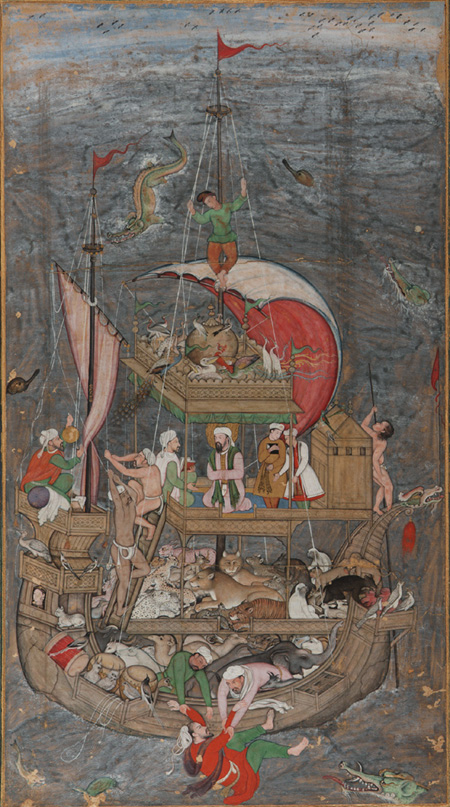God -
I don't understand
this salvation of yours
that leaves me here in the dry
while outside people drown.
The door is shut
and I can hear them scream
and scrabble at the wood,
panicking -
while here I sit
as my world is washed away
with people I knew
and people I loved -
I don't understand.
God -
they say you are love -
so why this cruelty?
Why wipe all away
and destroy what you made?
Why so violent an end
to a world that once was good?
I don't understand.
But this rain falling down -
are these not your tears?
Tears of love and tears of pain
for the many who suffered
under human cruelty
that became too great to bear
for this earth,
and for you.
How cruel must we have been
for these tears to be so many
that they fall without end,
forty nights and forty days,
covering the mountains,
an unfathomable sea?
Deep as this sea
was our evil on this earth -
deep as this sea
was the suffering and pain;
deep as this sea
was your sorrow and compassion -
deep as this sea
your love in sparing me.
This rain falling down
is not your cruelty
but your love that cannot bear
the cruelty it sees below.
This rain falling down
is an answer to the cries
of the innocent whose blood
screams to you from the ground.
This rain falling down,
these are your tears,
drowning a world
too evil to remain.
God -
I don't understand
this salvation of yours
that rescues us, even though
you know it will happen again.
Your tears will fall,
again and again,
for the innocent who suffer,
as evil lives on -
but a rainbow spans the skies
as again and again
you give a new chance
to this broken world.
_________________________________________________________________________
[29. June 2014]
I have observed that certain people like quoting the many people drowning in Noah's day in order to make a point about God not being particularly loving in the Old Testament. So I decided to look into the question and here's the result...
What I think is very important for us to realise about God's judgement is that:
1. It is always fair,
2. It is about God standing up for those who suffer.
When God brings judgement over people, it is not out of cruelty or senseless anger, but out of love and compassion for the suffering, and bringing an end to human cruelty and evil. In the case of the great flood, the cruelty of mankind must have been pretty bad, for God to actually regret having created us at all! The main emotion of God that comes through in Genesis 6:5-22 in connection to the situation on earth seems to me to be not anger but sadness: "it grieved him to his heart." (v.7)
So at some point while thinking about this the connection between the rain and God's sadness popped up. We need to realise that God's judgement is not out of cruelty, but out of love for those who suffer under cruelty. God is not cruel - we are. One thing I heard someone say after one of the big natural disasters of the last few years was: in such situations, we should not be asking why God lets bad things happen to good people, but why God lets good things happen to bad people. Because even the people God saved in the Ark went on to sin more and do more cruel things. If we look at the world today, it is full of cruelty again! So shouldn't we be all the more grateful for all the times God spares us from the punishment we deserve?
Picture by Gustave Doré
More of the family: Mrs Noah
.jpg)
